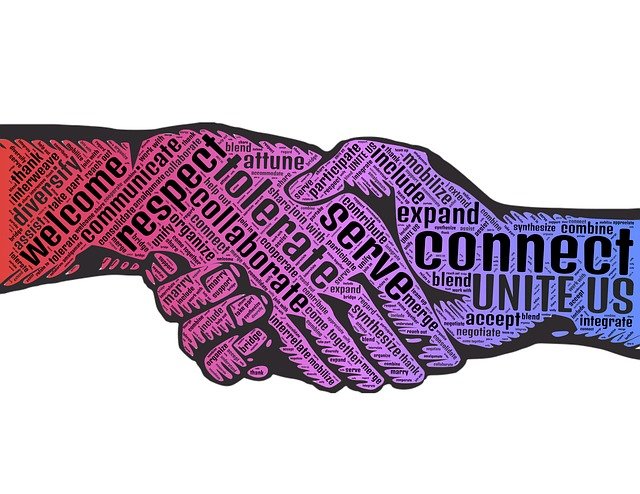Squaring Up for Civility: Embracing Confrontation for a Stronger Future
The Disappearance of Civil Confrontation
In recent years, many individuals in our society seem to have lost the ability to engage in civil conversations with those who hold differing opinions. This decline in civil confrontation has severe implications for solving complex problems and coexisting harmoniously. How did we arrive at this point, and how can we reclaim this essential skill? In this post, I will explore three analogies that illustrate various types of intellectual exchanges and discuss the importance of embracing confrontation for a stronger future. One of my favorite sources of information is the website IQ2, where you can listen to thought leaders on various sides of an issue debate the merits of their positions.
The Roots of Civil Confrontation
Before delving into the three analogies, it is crucial to understand the roots of civil confrontation. Civil confrontation is grounded in the belief that individuals can hold opposing opinions and engage in respectful discussions without resorting to personal attacks or hostility. This approach requires empathy, humility, and a willingness to listen and learn from others.
In the past, civil confrontation was an integral part of intellectual life, with public debates, forums, and dialogues encouraging the exchange of ideas. Historically, great thinkers like Socrates, Plato, and Aristotle engaged in civil confrontation to challenge and refine their philosophies. Today, however, the landscape of communication has changed significantly, with the rise of social media and the polarization of political and social discourse. These factors have contributed to the erosion of civil confrontation and the rise of more aggressive and unproductive forms of communication. In fact, sometimes intellectual exchanges feel more like a Vale Tudo, where some are simply looking to exact intellectual violence masked as intelligent critique and analysis.
The Intellectual Oasis: A Haven for Respectful Discourse
Envision a tranquil setting where ideas flow, and conversation is abundant and enriching. This is the Intellectual Oasis, the ideal form of civil confrontation. Call me naive but I believe we will live in a world like this one day. I should admit I am Treky and envision our future to be similar to what we see on that show, which may explain my optimistic outlook on the future. Participants in these exchanges listen attentively, provide examples to support their points, and remain respectful, even in disagreement. In this environment, everyone has the opportunity to learn and grow, paving the way for constructive problem-solving.
The Intellectual Oasis can be found in various settings, from academic institutions to informal gatherings. For example, consider a university seminar where students and professors engage in a lively discussion, challenging each other’s ideas and perspectives while maintaining a respectful tone. This type of intellectual engagement can lead to breakthroughs in understanding and foster a spirit of collaboration and mutual respect.
Similarly, think of a book club or a discussion group where members come together to share their thoughts on a particular topic or text. Despite differing opinions, the conversation remains civil and engaging, allowing participants to broaden their perspectives and learn from one another.
Squaring Up: A Passionate Yet Respectful Exchange
I grew up in a rough environment during a rough time. Physical fights were normal daily occurrences. When a disagreement reached a fevered pitch, sometimes you took it to the lawn. Picture two individuals who have a difference of opinion, with civility strained and the discussion becoming heated. They metaphorically “squared up” and engage in a fervent yet respectful exchange. While not as ideal as the Intellectual Oasis, this intellectual standoff still has merits. Both parties are willing to put their pride on the line, exchange ideas, and potentially lose face in the process. After the exchange, they shake hands, leaving no hard feelings or lingering grudges. This type of civil confrontation, though intense, can also lead to growth and understanding.
One example of Squaring Up can be seen in the world of competitive debating, where teams or individuals argue opposing sides of a given topic. Although the atmosphere can be intense and passionate, debaters adhere to strict rules of conduct, ensuring that the focus remains on the ideas and arguments rather than personal attacks. One of my favorite movies was the Great Debaters, I love this particular scene. This rigorous form of intellectual engagement can sharpen critical thinking skills and promote empathy, as participants are often required to argue positions that they may not personally agree with.
Squaring Up can also occur in more informal settings, such as heated discussions among friends, family members, or colleagues. While emotions may run high, the key to maintaining civility is to stay focused on the ideas and issues at hand, rather than resorting to personal attacks or insults. By doing so, participants can still learn from one another, even if they ultimately agree to disagree.
The Intellectual Drive-By: The Antithesis of Civil Confrontation
Lastly, consider the Intellectual Drive-By, an all-too-common scenario, especially on social media. In this situation, an individual quickly jumps to conclusions without taking the time to ask questions, understand the other person’s point of view, or seek clarity. Instead, they unleash a barrage of disparaging remarks and insults, intending only to embarrass, cause harm and/or silence the person they disagree with.
This approach is the antithesis of civil confrontation. It is counterproductive to learning from one another and ultimately does nothing to foster understanding or propel society forward. The Intellectual Drive-By should be actively discouraged and avoided, as it undermines the essence of productive communication.
Unfortunately, the anonymity and immediacy of the internet have made the Intellectual Drive-By all too common, particularly on social media platforms like Twitter and Facebook. In these environments, it can be all too easy for individuals to lash out at others without considering the impact of their words or the value of respectful discourse. This form of communication and intellectual exchange not only stifles meaningful conversation but also perpetuates division and misunderstanding.
To combat the prevalence of the Intellectual Drive-By, it is essential for individuals to practice self-awareness and restraint when engaging in online discussions. This might involve taking a moment to pause and reflect before responding to a comment or post, considering the potential consequences of one’s words, and making a conscious effort to engage in respectful and civil dialogue.
Reclaiming Civil Confrontation for a Stronger Future
As we grapple with the complex problems of our time, the importance of civil confrontation cannot be understated. Whether we engage in the harmonious discussions of an Intellectual Oasis or the passionate yet respectful exchanges of Squaring Up, we must strive to avoid the harmful and destructive nature of the Intellectual Drive-By. By embracing civil confrontation, we can learn from one another, grow as individuals and as a society, and pave the way for a stronger future.
To reclaim the art of civil confrontation, we must foster a culture of respectful discourse in our personal lives, workplaces, and communities. This may involve promoting open dialogue, actively seeking out diverse perspectives, and encouraging empathy and understanding.
Additionally, educational institutions can play a critical role in nurturing civil confrontation skills in future generations. By emphasizing the importance of respectful debate and discussion, schools and universities can help equip students with the tools they need to engage in productive intellectual exchanges throughout their lives.
Reflective Questions:
- Can you recall a civil confrontation that led to personal growth or a better understanding of a situation? What did you learn?
- How can we encourage friends, family, and even strangers to abandon the Intellectual Drive-By and embrace more productive forms of confrontation?
- What strategies can we employ to maintain composure and respect, even when conversations become heated?



![The Laws of [Social] Motion: Applying Newton’s Second Law to Systemic Racism and Inequality](https://arianlbryant.com/wp-content/uploads/2023/03/image0.png)



